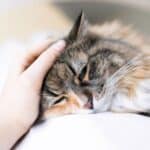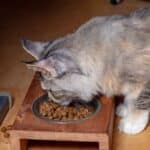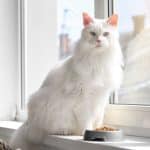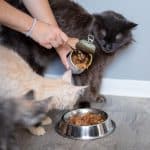We know you love your Maine Coon Cat (Maybe more than your kids? Don’t worry, we won’t judge!). You want him looking and feeling his best throughout his life. Diet is essential to your cat’s health. You could spend a small fortune feeding him the highest quality, locally-sourced, raw fish, but don’t worry – you don’t have to! Many choices are nutritionally balanced and won't break the bank.
Here are some things to consider when choosing a diet.
Jump to:
What’s Unique About the Maine Coon Cat?
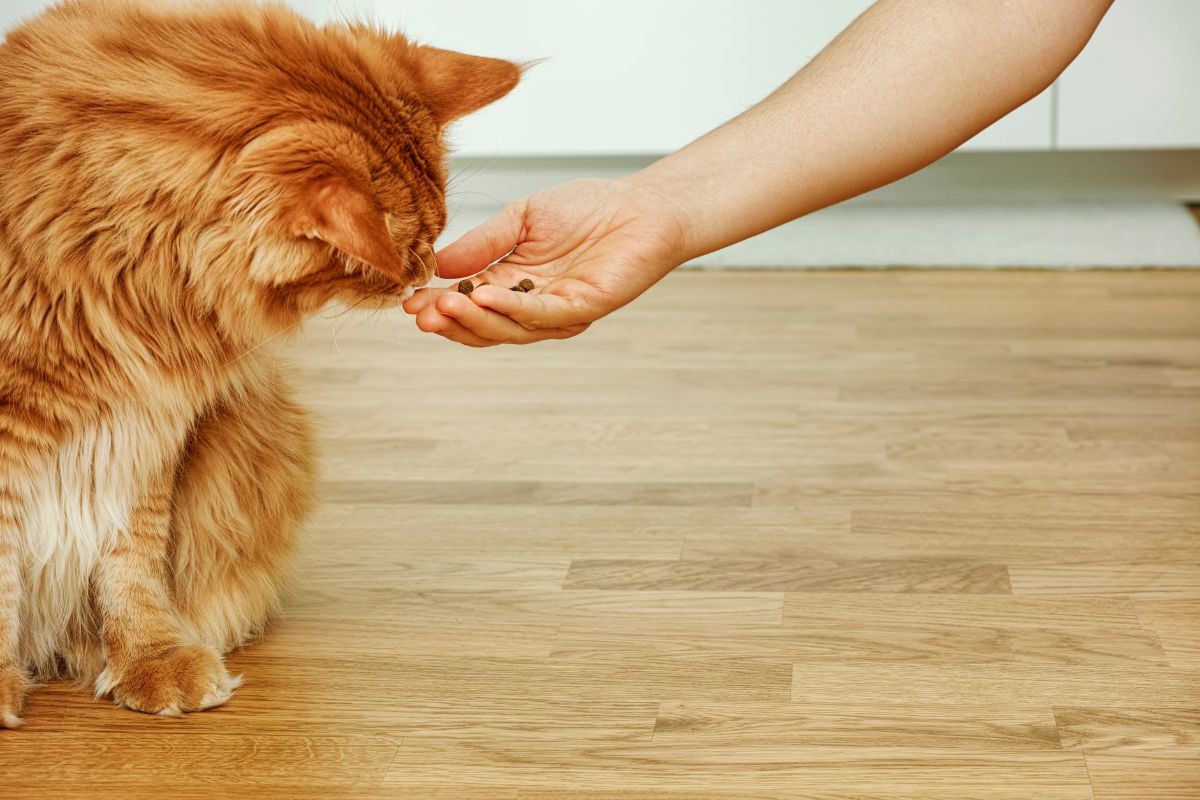
Your cat is special! Here's why:
• Largest of all cat breeds - most weigh 9 to 18 pounds!
• Doesn’t reach maturity until 3-5 years old, unlike most cats who are full-grown by their first year
• Prone to hip dysplasia because of its size
It is important to think about these unique characteristics when choosing a diet for your cat. The protein content of his food and how much your feed will be the most important thing to make sure he grows at a healthy rate.
Dietary Basics
All cats need certain elements in their diet, including:
• Protein
• Carbohydrates
• Fats and fatty acids such as arachidonic acid
• Amino Acids such as taurine and arginine
• Vitamins and Minerals such as Vitamin A and Niacin
All foods specifically designed for cats will contain an adequate mix of these elements. The Association of American Feed Control Officials (AAFCO) has determined minimum requirements. Check for their stamp on food labels.
Some brands market foods specifically for Maine Coon Cats, but research suggests these foods don’t make a significant difference in your pet’s health.
Ingredients
If you thought that the 2016 political race was fraught with arguments, get ready for the debate on cat food ingredients!
The good news: all food must meet certain standards. When choosing food, consider your values, your budget, your cat’s preference, and the advice of your vet.
Protein is the most important ingredient, especially for a large breed like the Maine Coon Cat. Most vets agree that animal proteins such as meat, chicken, and fish are preferable to plant proteins.
Budget allowing, you should opt for food that includes real protein sources over those that contain “meal” or “by-products." Many pet owners like to feed their pet a grain or gluten free diet, believing that these ingredients are bad for a cat’s digestion. Don’t worry, Garfield - this isn’t necessary if your pet doesn’t have a grain or gluten allergy.
And don’t forget taste! Even the highest quality foods aren’t worth it if your cat won’t eat it.
Wet Vs Dry Food
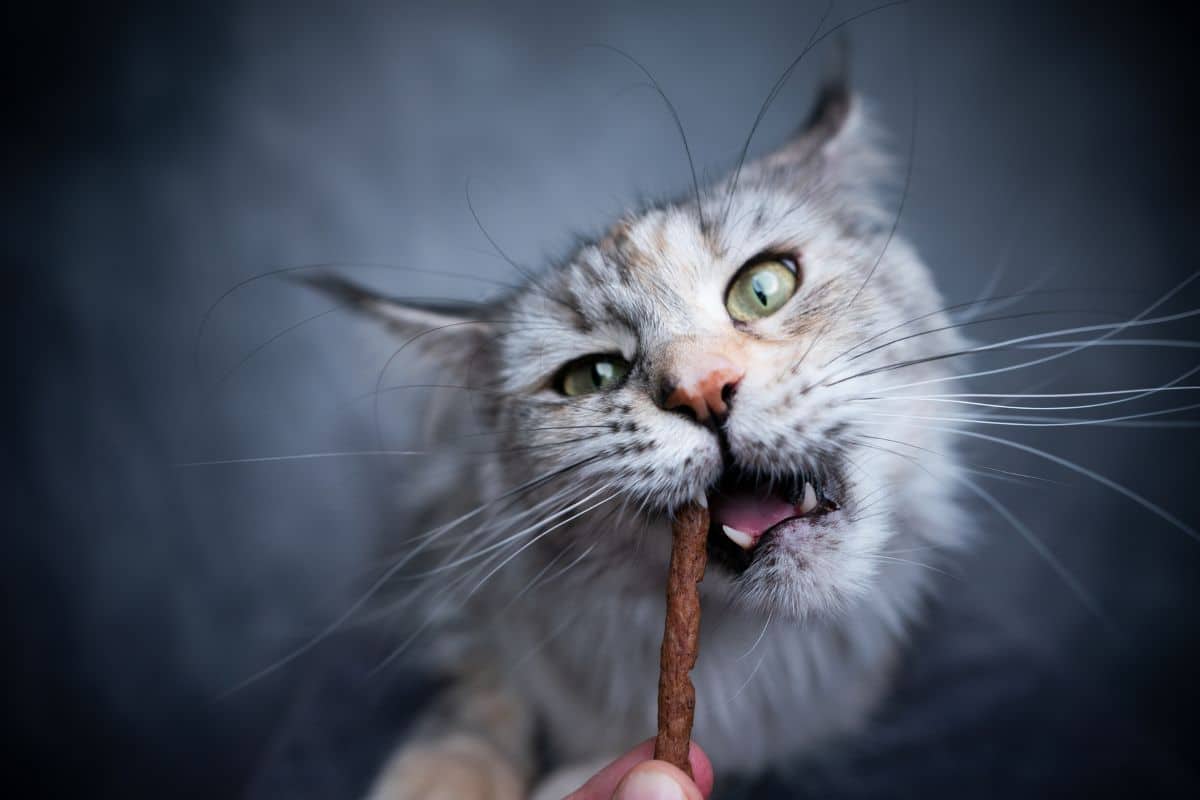
Whether you feed your cat wet or dry food is also a matter of preference.
- Dry foods are easier to prepare than wet foods and allow a cat to use his teeth.
- Wet foods have a higher moisture content. This is important for cats that don’t drink as much on their own and to maintain proper kidney function as your cat ages.
- A mix of wet and dry food will ensure a right balance for your cat.
Stage of Life
Just like humans, cats require different nutrition at various stages of life. Your sweet baby needs different food than your seasoned feline in his golden years.
- You should feed your kitten a formula designed specifically for kittens. This will meet all the nutritional needs for your growing friend.
- Because Maine Coon Cats reach maturity later than other breeds, you may want to keep your cat on kitten food longer. Most cats make the switch around 4 to 5 months, but some vets suggest keeping Maine Coons on kitten food up until 9 months. Discuss this with your vet.
- Senior cats also have different needs. Many companies make food specially designed for older cats which you might consider depending on your cat’s health.
Indoor vs. Outdoor Cat
Indoor cats will typically not get as much exercise as outdoor cats and will need fewer calories per day to keep those love handles at bay. Many companies market food especially for indoor cats, but these foods can contain fillers and lower-quality proteins.
Regardless of what you chose, make sure your cat is getting the proper amount of food to encourage a healthy weight. Refer to the package instructions or ask your vet how much you should be feeding your pet.
While there are many options for feeding your pet, the choice doesn’t have to be overwhelming. The most important factor is choosing a nutritionally balanced food that fits your budget and your cat’s taste. Your vet can help you decide what food is best for your cat’s specific needs.

